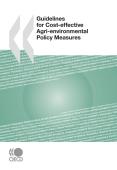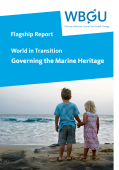
This paper offers an initial assessment of the use, potential usefulness and legality of local content requirements (LCRs) in renewable energy policy. By scrutinising existing empirical evidence on LCRs, the authors identify a number of initial basic conditions that determine the effectiveness of such measures in creating domestic industries. The paper provides an in depth analysis of the wind LCR in China, and descriptive analyses of other LCRs used in the promotion of renewable energy around the world. It further qualitatively addresses the question whether or not local content requirements and medium-term innovation could be aligned. Finally, it discusses the legality of the measures under WTO law.
Other case studies include Canada, Spain, Italy, France, Greece, Croatia, the United States, India, Brazil, South Africa and Turkey.
This report focuses on the wind and solar PV sectors in India. It reviews the Indian policy framework for increasing the share of renewables in the energy mix within the context of multiple social, economic and technological objectives. Based on this analysis, it concludes that while support to the industry has come at a relatively low cost, development has been slow and many policies have been found wanting when evaluated against the originally proposed goals.
The report suggests that ‘green ’rather than ‘industrial’ elements have been best supported by policy to date. Impacts are most clearly seen in energy security and access, avoided health costs and the abatement of greenhouse gas emissions, while the industrial policy element has fared poorly in comparison. Marrying the two elements more completely will allow the benefits of a renewable energy manufacturing sector and environmental protection to be successfully realized.


This monograph presents a critical review of carbon trading in Africa. It comprises a compendium of essays by an expert group of authors, each analysing key issues from a corruption and governance perspective. The chapters include a discussion on the context of and trends in the carbon market in Africa, offset projects in Uganda, Ethiopia and South Africa, carbon finance and regulation. The authors explore issues around transparency and accountability, and examine the integrity of systems and processes aimed at achieving professed goals of climate change mitigation and sustainable development. While deficits in transparency and accountability do not necessarily constitute corruption, they are nevertheless seen as cause for concern as they provide opportunities for corrupt activities to take place. In general, corruption is approached in a nuanced way because carbon trading provides new and different ways of profiting illegitimately at the expense of a deteriorating climate. For this reason, the study adopts a broad definition of corruption, sometimes using it to indicate a particular or singular abuse, and sometimes to refer to systemic challenges.
